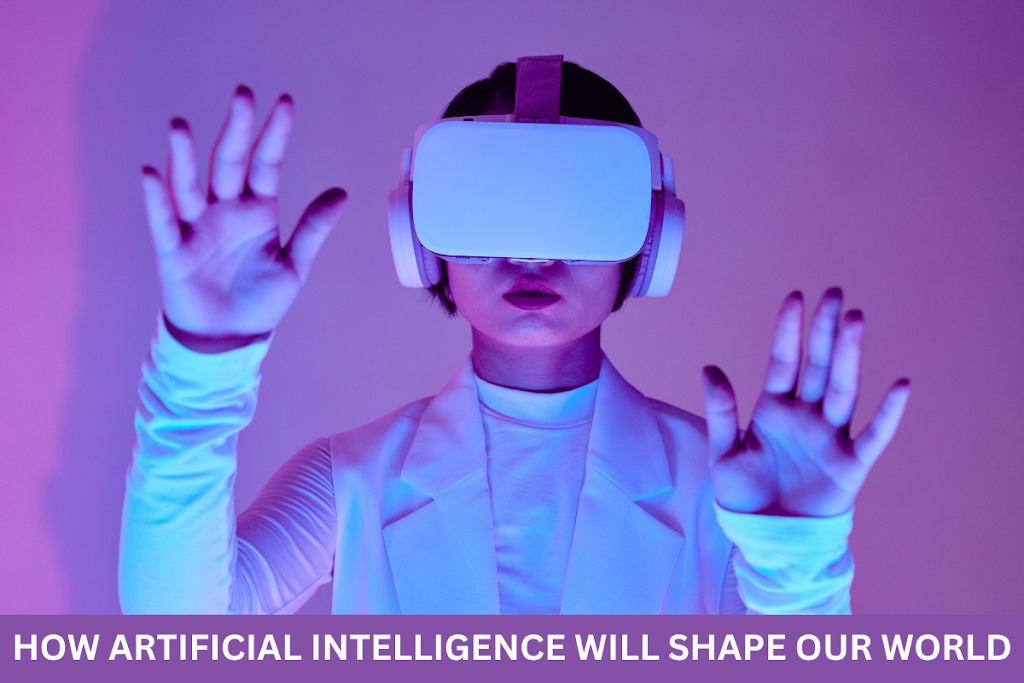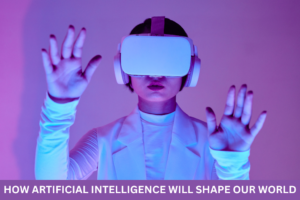How Artificial Intelligence Will Shape Our World
Artificial Intelligence (AI) is no longer a distant dream of science fiction—it’s an active force driving innovation and change across every corner of modern life. From automating complex tasks to supporting smarter decisions, AI is deeply woven into the way we live, work, and interact with technology. As this powerful technology advances, it will continue to leave a significant mark on industries such as healthcare, transportation, education, and cybersecurity. This article explores how AI is influencing the future and what it means for our society.
Transforming Healthcare with AI
AI’s impact on healthcare is one of its most promising applications. Intelligent systems are now capable of diagnosing illnesses more accurately, reading medical scans, and recommending personalized treatment strategies. Machine learning models are helping medical professionals detect critical conditions—like heart disease, cancer, and neurological disorders—at earlier stages, greatly improving treatment outcomes. Additionally, robotic-assisted surgeries are reducing complications by increasing precision. Virtual assistants and AI chatbots are also enhancing healthcare accessibility by offering instant medical advice and support, especially in remote areas.
Revolutionizing Industries Through Automation
Across various sectors, AI is changing the way businesses operate. In manufacturing, AI-driven machines are streamlining repetitive tasks with unmatched accuracy and speed. This leads to greater productivity and reduced labor costs. Companies are also tapping into AI-powered analytics to understand market trends, manage inventory, and deliver better customer service. Intelligent chatbots are becoming the first point of contact for customer queries, enabling 24/7 service without the need for human agents. While automation may lead to job shifts, it also paves the way for innovation and new career opportunities requiring advanced skills.
AI’s Role in Modern Transportation
The transportation sector is undergoing a major transformation thanks to AI. Autonomous vehicles are being designed to enhance road safety, reduce human error, and improve traffic efficiency. AI is also optimizing operations in aviation by managing flight paths, lowering fuel usage, and improving safety protocols. In the logistics field, AI-enabled drones and self-driving delivery robots are making last-mile deliveries quicker and more reliable. These developments are not only enhancing mobility but also contributing to a more sustainable transportation system.
Redefining Education with Smart Technology
AI is revolutionizing the educational experience by offering personalized learning paths for students. Intelligent tutoring platforms assess individual performance and adapt content to match each student’s learning style. AI chatbots provide real-time academic support, answer questions, and share learning resources. Emerging technologies like virtual reality (VR) and augmented reality (AR), when combined with AI, create immersive and interactive classrooms. Educators are also benefiting from data-driven insights, which help them monitor student progress and tailor instruction to meet learners’ needs more effectively.
Securing the Digital World with AI
As digital threats grow more sophisticated, AI is becoming a crucial ally in cybersecurity. These systems can analyze vast amounts of data to detect anomalies and prevent attacks before they happen. Machine learning models are identifying patterns that signal potential breaches, allowing for proactive defense strategies. AI-based security tools like facial recognition and behavioral authentication are adding new layers of protection for digital transactions and identity verification. Organizations are now better equipped to defend themselves against cybercrime with the help of intelligent, adaptive systems.
Ethical and Social Impacts of AI
Despite its advantages, the rise of AI brings important ethical considerations. Issues surrounding data privacy, algorithmic bias, and the misuse of AI in surveillance continue to spark debate. If not addressed properly, these concerns could erode trust in AI systems. It’s essential that AI models are developed with fairness, transparency, and accountability in mind. Regulatory bodies and technology leaders are working to establish ethical guidelines that promote responsible use. Encouraging public dialogue around these topics will be key to creating a balanced framework for AI governance.
What Lies Ahead for AI
As AI continues to evolve, its influence on the future will grow exponentially. Advancements in quantum computing, robotics, and language understanding are expected to unlock new possibilities across science, business, and everyday life. To fully harness these capabilities, collaboration among policymakers, researchers, and industries is vital. Building ethical standards, enforcing thoughtful regulation, and fostering ongoing education will be essential in shaping a future where AI is used for the collective good.
Final Thoughts
Artificial Intelligence is no longer just a tool—it’s a driving force behind some of the most impactful changes of our time. From improving healthcare and making transportation smarter, to enhancing education and cybersecurity, AI is touching nearly every facet of modern life. While challenges like job shifts and ethical risks must be navigated with care, the benefits of AI are vast and promising. By approaching AI with responsibility, openness, and innovation, we can build a future where technology empowers humanity and opens new doors to progress.






